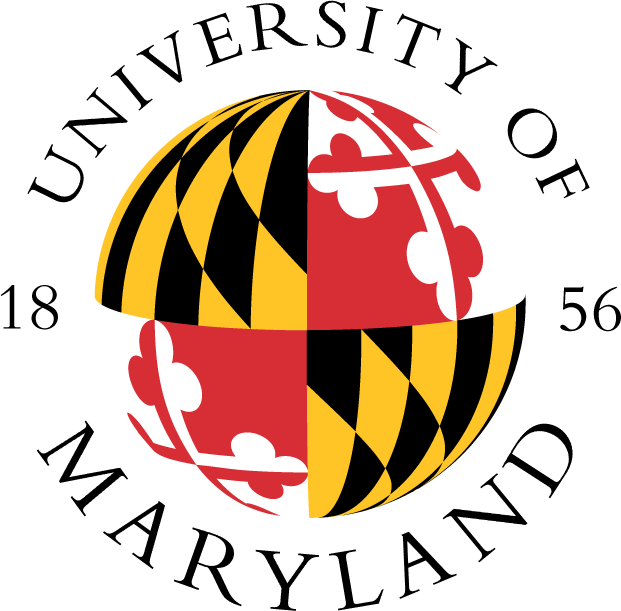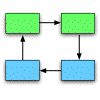Physics 374 Main Handout
Prof. E. F. Redish
Title: Physics 374: Intermediate Theoretical Methods
Introduces or reviews areas of mathematics that are regularly used in upper level and graduate courses in physics, including important areas from complex variables, Fourier analysis, partial differential equations and eigenvalue problems. These methods will be studied in the context of relevant physics applications. A current standard symbolic manipulation program (Mathematica) will be introduced and its appropriate use in theoretical analyses will be taught
Prerequisites:
Successful completion of the calculus-based introductory physics sequence, e.g., Physics 171-272-273 (or an equivalent sequence), and Math 246 (differential equations). Math 240 (linear algebra) is a co-requisite.
Who?
| |
Name |
Room |
Phone |
Office Hours |
| Instructor | E. F. Redish | 1308 | X56120 | By arrangement or W 2:00-4:00 |
| TA | Tom Bing | 1322 | X56185 | T 9:00-11:00 |
Where and When?
All classes are held in room 1402 in Toll Hall (the Physics Building).
| |
Monday |
Tuesday |
Thursday |
| Time |
11-1 | 11-12 | 11-12 |
What?
Introduction:
Although this class is titled "Theoretical Methods", I will try to keep the focus on the physics. The crucial part of learning math methods is not just learning to do the math; it's in learning to use the math to make sense of the physics. Often the hard part will be deciding how to set up the math before you start any calculations at all -- or after you're done interpreting your results physically.
Clicking on the link above will take you to a page outlining a tentative syllabus for the class. The actual content will vary. We might go faster or slower or drop and add content depending on what the class knows and is interested in.
How?
Recommended Texts:
There is not a specific text that matches the material and the approach in this class exactly. A number of relevant texts have been placed on reserve in the engineering library, including:
- Math books
- Mathematical Methods in the Physical Sciences by Mary Boas;
- Mathematical Methods for Physicists by George B. Arfken and Hans J. Weber
- Mathematics for Physicists, Susan M. Lea
- Mathematica books
- The Mathematica Book by S. Wolfram
- Physics books
- Physics of Waves by H. Georgi
- Spacetime Physics by E. F. Taylor and J. A. Wheeler
There are lots of potentially useful websites. I will create a page of links that look good to me. If you find any you like, please let me know so I can add them and the rest of the class can use them too.
Class Participation:
You should attend all classes. This is particularly important since we have no formal text.
Technology
Homework:
- Homework is where it's at in this class! A major part of what I expect you to learn in this class will come as a result of doing homework. Homework will not be a lot of purely manipulative exercises. Most problems will be reasonably challenging.
- Work together! Since the problems will be difficult, it may not be easy to do them entirely on your own. You are encouraged to work together, but each member of the group must fully understand how to solve each problem on their own. ("Oh, I see." is not good enough!) Each person must write up his or her own solution. If two writeups are found to be essentially identical, neither will receive credit. The best way to be sure to not produce cloned solutions even when you work together is to agree on a solution, then each write up the work independently. Do not all copy from a solution you worked out together on the board. Instead, recreate the solution on your own paper and include discussion and explanations of what you have done.
- Explanations are essential. On homework (and on most exam problems) you will be expected to include explanations as to what principles you are using and how you know they are relevant. An answer which only includes equations is unlikely to get full credit.
- HW is on the web. Homework will be assigned every Monday and will be due at the beginning of class one week later. Homework will be posted on our website. Solutions will be posted on our website soon after they are due. As a result, late homework will not be accepted. (You should expect to spend between 4-6 hours each week on homework.)
Exams:
- There are 3 exams. -- There will be two midterm exams and a final. All exams will be counted. Each midsemester exam will be given on a Monday in our two-hour block so as to give you more time (tentatively, on 10/11 and 11/15), and will be returned later in the week.
- You can improve an exam grade 1: Regrades -- Since we will go over midsemester exams in class, you will be able to get a good view of how it was graded. If you think the grader misunderstood what you were saying, or failed to give you proper credit, you can apply to me for a regrade by writing a clear description of why you think you should have more points and turning it in with your exam. (Be sure not to write on your exam itself since this will mean I would have to look up the scanned exams to see what you originally wrote. Requests for regrades on altered exams will be automatically reported to the honor committee. Don't do it!)
- You can improve an exam grade 2: Makeup exams -- Each midterm exam will be followed by a makeup exam on the Thursday a week after the exam, in the late afternoon If you miss a midterm, you must take the makeup. If you are unhappy with your grade on an exam, you may take the makeup. If you take both the original and makeup exams, your grade for that exam will be the average of the two grades (whether you do better or worse). Students who carefully consider their errors and understand what they did wrong on the first exam almost always improve. Students who don't do this and just "take another shot" and "study some more" are as likely to go down as to go up.
- The final -- The final exam will be cumulative. I may decide to give it as a take-home exam to alleviate the time pressure.
Grading:
- Components --
| Hour exams (100 pts) | 200 |
| Final exam (200 pts) | 200 |
| Homework (scaled to 200) | 200 |
| Total | 600 |
Prof. E. F. Redish
RETURNS
| University of Maryland |
Physics Department |
Physics 374 Home |
 |

|

|
This page prepared by
Edward F. Redish
Department of Physics
University of Maryland
College Park, MD 20742
Phone: (301) 405-6120
Email: redish@umd.edu
Last revision 16. September, 2004.


